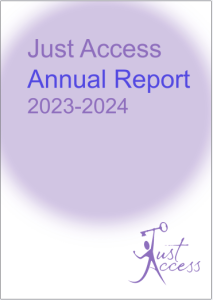
Sabina Grigore
Just Access Representative to the UNODC
In May 2025, Hungary initiated its long-anticipated exit from the International Criminal Court (ICC). This move was┬Ł┬Ł┬Ł┬Ł┬Ł┬Ł┬Ł┬Ł┬Ł foreshadowed by Prime Minister Viktor Orb├ĪnŌĆÖs November 2024 invitation to Benjamin Netanyahu, the Prime Minister of Israel, to visit the country shortly after the Court issued a warrant for his arrest in relation to war crimes and crimes against humanity.
Viktor Orb├Īn claimed that the ICCŌĆÖs politically motivated issuance of the arrest warrant would not have any effect on Hungary and stated that, even though Hungary signed the Rome Statute, it was never enforceable in the country and that ŌĆ£Hungary has always been half-hearted” when it comes to its ICC membership.
A lack of state cooperation is considered an act that has an undesired impact on the ICCŌĆÖs proceedings, image, and credibility.
Under Article 86 of the Rome Statute, all State Parties are under an obligation to fully cooperate with the Court.┬Ā Accordingly, they are vested with both the responsibility as well as the power to┬Ā arrest and surrender suspects.┬Ā Nevertheless, on the 3rd of April 2025, Netanyahu was welcomed in Budapest with a red carpet and military honours. On this occasion, Hungary also announced its withdrawal from the Rome Statute.
Support our work!
We can only do our work thanks to the support of brave, passionate people like you!
Your donation will help us to keep fighting for human rights and access to justice for everyone, everywhere.
What does this mean for the ICC?
Since the early days of the Court, cooperation in arresting and surrendering suspects has been outlined as one of the most immediate needs of the Court. ┬ĀAdditionally, a lack of state cooperation is considered an act that has an undesired impact on the CourtŌĆÖs proceedings, image, and credibility. ┬ĀAlthough State Parties are under a general obligation to cooperate with the ICC, many have failed to do soŌĆösending a dangerous message that perpetrators can defy justice, evade accountability, and commit crimes with impunity.

One of the most high-profile cases of non-cooperation with the ICC occurred in 2016 when South Africa nearly withdrew from the Court after failing to arrest Sudanese President Omar al-Bashir. ┬ĀWanted by the ICC for genocide, war crimes, and crimes against humanity, Bashir was allowed to leave South Africa after attending an African Union summit. ┬ĀTo justify this, the South African government argued that, according to international customary law, heads of state have immunity during such diplomatic events. ┬ĀNotwithstanding, the ICC, as well as other international courts and organizations, have held that sitting or former heads of state cannot use immunity to escape prosecution by an international court.
Despite multiple threats of withdrawal from various countries, only the Philippines and Burundi have successfully withdrawn from the Rome Statute. While withdrawing from the Rome Statute is a sovereign decision, this does not affect ongoing proceedings or cases under consideration, as the ICC retains jurisdiction over crimes committed while the country was a State Party to the ICC. ┬ĀFormer Philippine President Rodrigo DuterteŌĆÖs recent arrest in March 2025 underscores this truth, as he was apprehended at the airport in Manila under an ICC warrant for alleged crimes against humanity related to his anti-drug campaign, which were allegedly committed between 2011 and 2019.
The ICC, as well as other international courts and organizations, have held that sitting or former heads of state cannot use immunity to escape prosecution by an international court.
Since the ICC has 30 suspects at large, its ability to make arrests remains hampered by a lack of state cooperation, with many countries unwilling to enforce arrest warrants. ┬ĀWhile some countries pledge to comply with arrest warrants, others remain hesitant or non-committal, making it unclear whether they will ever enforce the CourtŌĆÖs decisions. ┬ĀThis creates the risk of empty ICC courtrooms, which is further compounded by growing allegations of the CourtŌĆÖs bias and opacity, as well as the imposition of sanctions against the court, particularly from powerful international players like the United States.
Conclusion
Addressing these challenges requires coordinated international support to uphold institutions dedicated to justice and accountability for serious crimes This effort must also include a strong condemnation of any decisions to withdraw from the Court, which only undermine global efforts to uphold justice and accountability.
Just Access e.V. is a non-party political organisation, whose mission is to support human rights and access to justice worldwide. ┬ĀThe views and opinions expressed in this piece and those of the author, and do not necessarily represent those of Just Access e.V.┬Ā
Subscribe to the Just Access newsletter
Don’t miss any of our blog posts, or any of our other great content!
Stay up to date with our work by subscribing to the Just Access Newsletter (six mailings per year).









